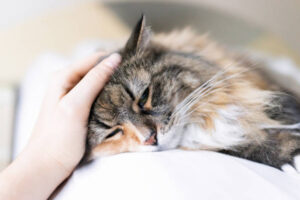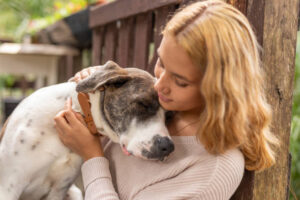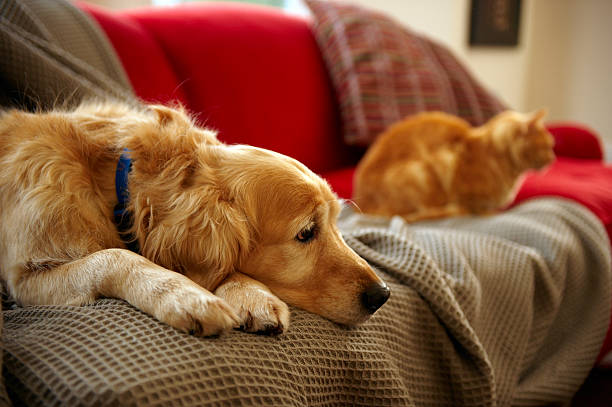Signs of Stress in Pets

Our furry companions bring us endless joy and love. But just like us, pets can experience stress too. Unfortunately, they can’t tell us in words when they’re feeling overwhelmed. However, by understanding the signs of stress in pets, we can become better attuned to their needs and create a calmer, happier environment for them.
Introduction: Understanding Stress in Pets
Stress is the body’s natural response to a perceived threat or challenge. While some stress can be short-lived and even beneficial (think pre-play zoomies!), chronic stress can take a toll on a pet’s physical and mental well-being.
Common stressors for pets include:
- Changes in routine: New pets, a move, a baby, or even a change in your work schedule can disrupt a pet’s sense of security.
- Separation anxiety: Some pets struggle when left alone, especially for extended periods.
- Loud noises: Fireworks, thunderstorms, or even loud traffic can be frightening for pets.
- Travel: Car rides, vet visits, or trips to the groomer can be stressful experiences.
- Social interactions: Meeting new people or pets can be overwhelming for some animals.
- Underlying medical conditions: Pain or illness can be a significant source of stress for pets.

Spotting the Signs: A Tail of Two Species
While the underlying causes of stress might be similar, how pets communicate their distress can vary depending on the species. Here’s a breakdown of some common signs to watch for in cats and dogs:
Cats:
- Changes in behavior: Hiding, withdrawal, excessive grooming, litter box problems, or sudden aggression can all be signs of a stressed feline.
- Physical changes: Dilation of pupils, flattened ears, a twitching tail, or excessive shedding might indicate your cat is feeling overwhelmed.
- Vocalization: Excessive meowing or hissing can be a way for cats to express anxiety.
Dogs:
- Body language: Tucked tail, flattened ears, lip licking, yawning excessively, or whale eye (showing the whites of the eyes) are all signs of canine stress.
- Changes in behavior: Pacing, whining, destructive chewing, barking, or housetraining regression can be indicators of a dog struggling to cope.
- Physical changes: Panting, trembling, loss of appetite, or digestive issues can be stress-related in dogs.
Beyond the Basics: General Signs of Stress
Here are some additional signs that might indicate your pet is stressed, regardless of species:
- Changes in appetite: Either loss of interest in food or increased eating can be signs of stress.
- Sleep disturbances: Sleeping more or less than usual can be a red flag.
- Self-mutilation: Excessive licking, chewing, or scratching at themselves can be a way for pets to cope with stress.
- Weakened immune system: Chronic stress can make pets more susceptible to illnesses.

Helping Your Stressed Pet
If you notice signs of stress in your pet, the first step is to identify the potential cause. Once you’ve addressed the source of stress, here are some tips to help your furry friend relax:
- Provide a safe haven: Create a quiet, comfortable space where your pet can retreat and feel secure.
- Maintain a routine: Sticking to a consistent schedule for feeding, walks, and playtime can provide a sense of predictability for your pet.
- Positive reinforcement training: Reward calm behavior to help your pet associate positive feelings with relaxed states.
- Desensitization: Gradually expose your pet to stressful triggers in a controlled environment to help them build tolerance.
- Consider pheromones: Synthetic pheromones can mimic calming chemicals naturally produced by animals, creating a sense of security.
Remember, if you’re concerned about your pet’s stress levels, consult your veterinarian. At Animal Hospital of Aurora we understand your pet’s needs. We can rule out any underlying medical conditions and provide personalized guidance to help your pet feel happy and healthy again. Book an appointment now!
Conclusion:
By recognizing the signs of stress and taking steps to create a calm and supportive environment, we can ensure our furry companions live their best, stress-free lives.



